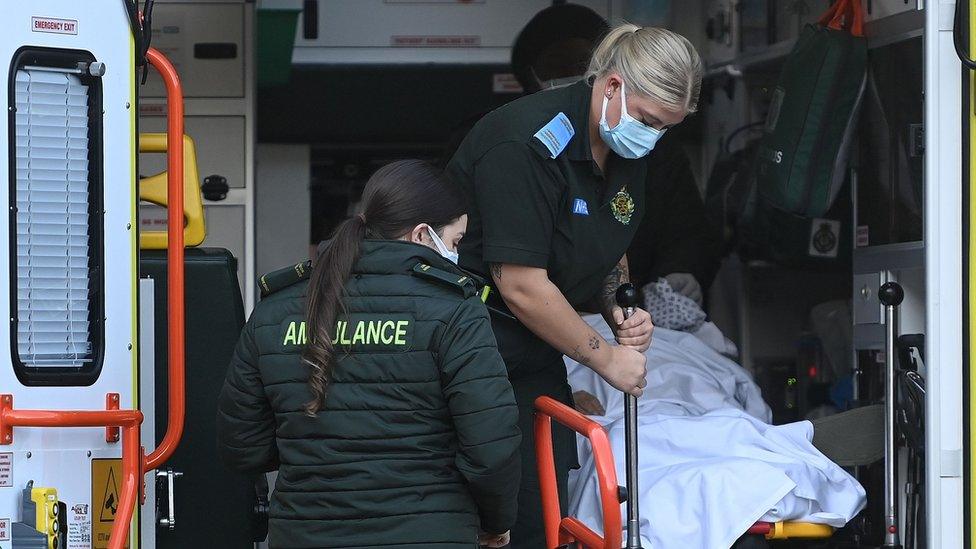Ambulance strike: Make firm promise on pay, says union boss
- Published
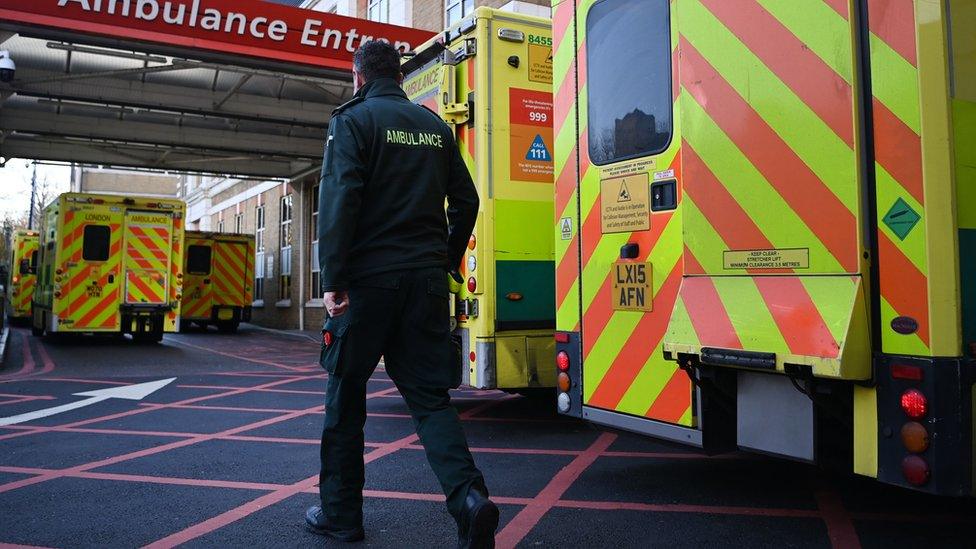
A health union boss has accused the government of "complete intransigence" on pay for ambulance staff, ahead of a week of strikes in the NHS.
Unison general secretary Christina McAnea said Wednesday's ambulance strike action would go ahead without a "very firm commitment" on pay.
A second nurses' strike is set to go ahead on Tuesday, meaning thousands of rescheduled appointments and surgeries.
The health secretary said unions must ensure "sufficient" emergency cover.
Under trade union laws, life-preserving care must be provided during strikes by health workers.
But Steve Barclay said there was a lack of clarity about what was being offered during the ambulance strike, and that it was for the unions to ensure they "meet their obligations" for emergency cover.
On a visit to King's College Hospital in south London earlier, Mr Barclay was confronted over a lack of resources for the NHS by the mother of a child with cystic fibrosis who said she feared for her daughter Lucy's future.
"The damage that you're doing to families like myself is terrible," she said, describing difficulties with getting a bronchoscopy appointment for her three-year-old.
Watch: Mother of ill child grills Health Secretary Steve Barclay on NHS
Unions representing NHS workers are asking for staff pay rises above inflation - but Mr Barclay says that is "unaffordable".
The governments in England and Wales have given staff an average rise of 4.75%, with a guaranteed minimum of £1,400.
Mr Barclay said unions should respect the independence of the NHS pay review body that proposed the current offer.
Some 10,000 ambulance staff in England and Wales will walkout on Wednesday and 28 December.
Downing Street said the armed forces would step in to minimise disruption, with 750 military staff using civilian ambulances, as well as 600 drivers and 150 support staff. Separately, the government has said it wants to reduce its reliance on the armed forces to fill gaps in emergency situations.

No indication that pay is on the agenda

The health secretary has said his door is always open and as if to demonstrate that has invited officials from three unions representing ambulance staff for talks tomorrow afternoon.
He is understood to be concerned about levels of emergency cover which will be maintained during the strikes.
But unions say they are puzzled as there are negotiations locally with employers.
One deal done in a local area allows for calls for life-threatening conditions, paediatric and maternity emergencies to be covered.
Major incidents, acute stroke calls and elderly patients who have fallen outside or been on the floor for more than four hours will also get an ambulance response.
But there is no indication that pay is on the agenda for this meeting and as such that suggests there will be no agreement to call off the most widespread strikes by ambulance staff in more than 30 years.

'No opportunity to use the toilet'
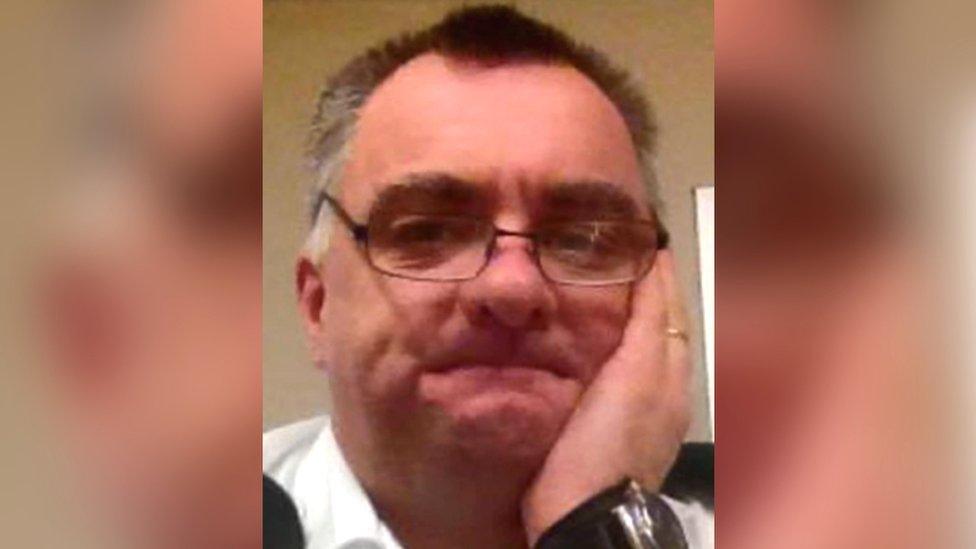
Stephen Raven has been a paramedic for eight years
Paramedic Stephen Raven, 52, tells the BBC he's striking as staff are being asked to do "more and more to an extreme level for less and less".
"There are no intervals between jobs. There is no opportunity to return to the station to use the toilet. We regularly miss breaks," he says.
"I'm scheduled to work a 12-hour shift but I do 14 hours minimum and there is no opportunity to leave this vehicle unless I'm with a patient. I'm often too tired to deal with my family when I get home.
"Many will say that we get paid overtime for finishing late - and we do - but I would like to go home and see the wife. It is not about the money it's about a desirable lifestyle."
Mr Raven, who works for the West Midlands Ambulance Service, says a patient he visited today had waited 18 hours for an ambulance. "His question to me was, 'are you on strike?' And my response was, 'no, the system's broken now'."

Wednesday's action is being taken in England and Wales by the three main ambulance unions - Unison, GMB and Unite.
It will affect non-life threatening calls, meaning those who suffer trips, falls or other injuries may not receive treatment.
Nurses who are members of the Royal College of Nursing (RCN) will also strike again on Tuesday after its largest strike in history last week. Across England about 10,000 staff were absent, while nearly 16,000 appointments, procedures and surgeries were rescheduled.
Speaking to BBC Radio 4's Today programme, Ms McAnea said the decision to go ahead with this week's ambulance strike had not been taken lightly.
She said the government had "adamantly refused" to engage in a "proper discussion" on pay.
Unite leader Sharon Graham said Mr Barclay would "have to carry the can if patients suffer".
"It's Steve Barclay who is holding the country to ransom," she told the Daily Mirror.
Unions say the government has the power to stop the health service strikes if it signals a willingness to discuss pay.
They said discussions are still taking place with ambulance trusts to draw up detailed plans for cover.
The ambulance walkouts will involve paramedics as well as control room staff and support workers.
Welsh Ambulance Service CEO Jason Killens said about 15% of callouts were for issues which were immediately life threatening, although this varied across the regions.
He said a provision was in place for a "full return to duty, should there be a declared major incident", such as a terrorist attack.
Members of GMB are set to follow up the action with another walkout on 28 December.
The government's emergency Cobra committee met on Monday morning to discuss how to lessen the impact of the ambulance strike. Ministers have already announced members of the military will be on standby to help.


Both Unison and the Royal College of Nursing (RCN) union have threatened further strikes in the new year if an agreement on pay is not reached.
The strikes are part of a week of widespread industrial action in other sectors.
The main union representing Border Force staff is set to walk out for eight days between 23 and 31 December.
Postal strikes will take place on 23 and 24 December - some of the busiest days for pre-Christmas deliveries.
The RMT rail workers' union is also set to stage strike action between Christmas Eve and 27 December.
Additional reporting by Kris Bramwell.
- Published18 December 2022
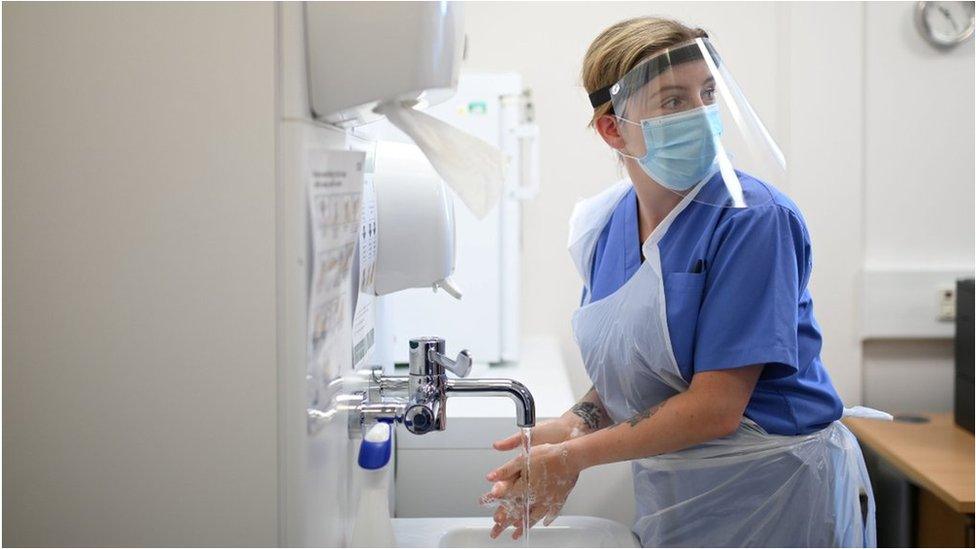
- Published22 December 2022
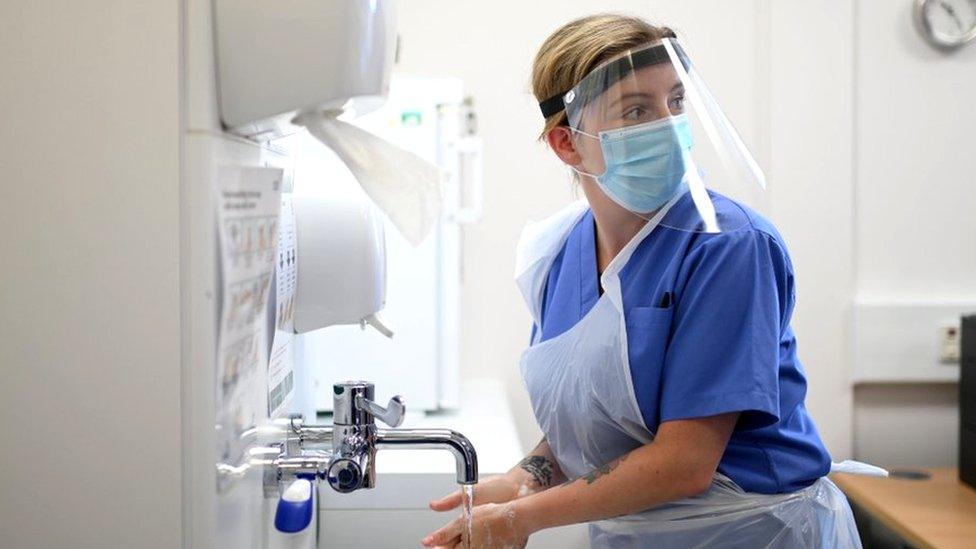
- Published2 May 2023
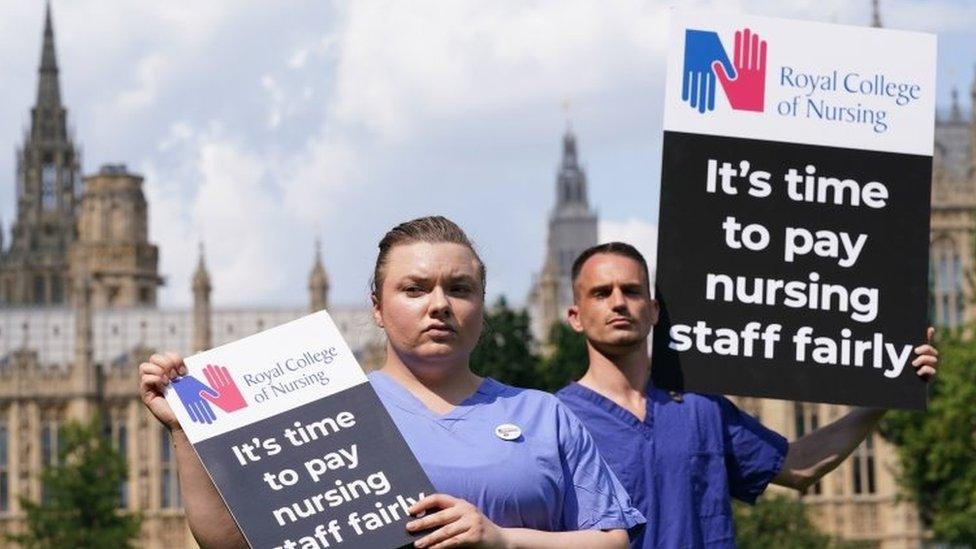
- Published18 December 2022
